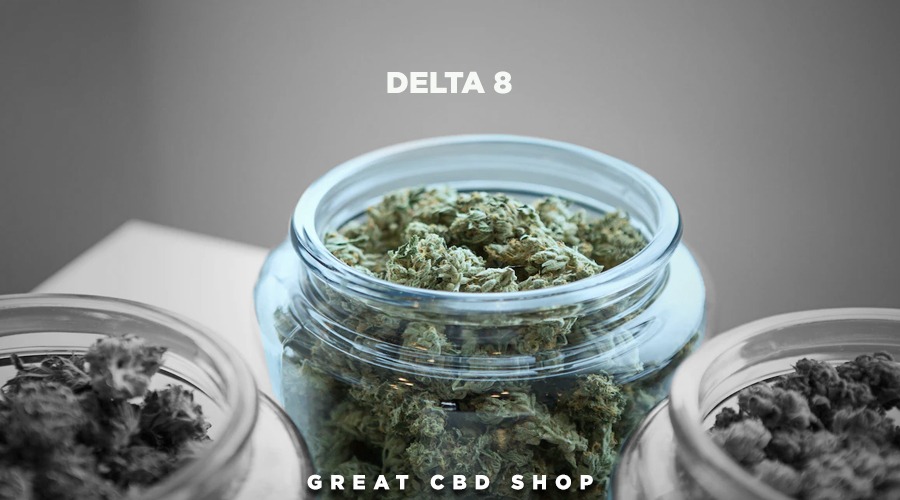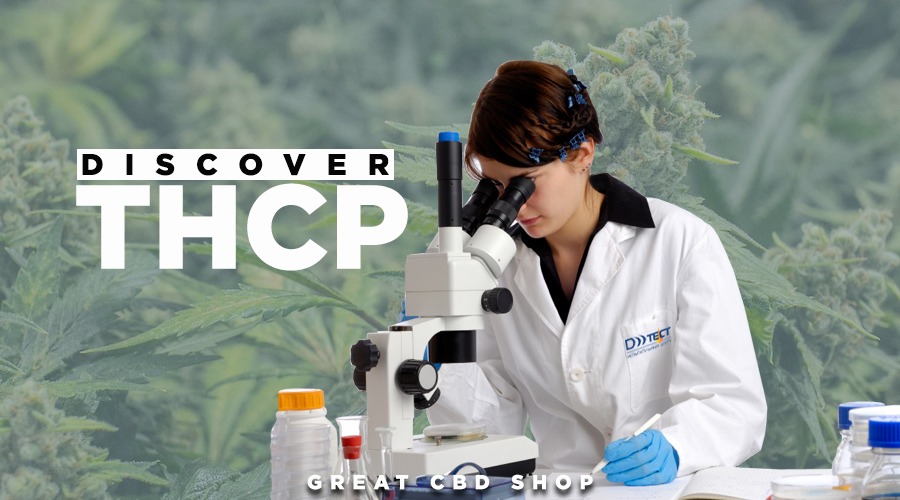THCP vs. Delta 8: A Comparative Look at Novel Cannabinoids

Cannabis, a versatile plant with numerous compounds, constantly surprises us with its myriad of properties. Today, let’s delve into two intriguing cannabinoids: THCP and Delta 8.
Understanding THC
Before diving into our two main subjects, let’s set the stage with THC, the superstar of cannabis.
Short Name, Big Impact
Tetrahydrocannabinol, more commonly known as THC, is the primary psychoactive compound in cannabis. In simpler terms, it’s the reason behind the euphoric sensation or the “high” that cannabis consumers experience.
The Euphoria Factor
While many consume cannabis for its therapeutic effects, THC’s reputation largely comes from its ability to induce euphoria. It’s this unique characteristic that has both fascinated and alarmed societies globally.
Medicinal Wonders
Beyond the high, THC boasts a spectrum of medicinal properties. From offering pain relief and reducing nausea to stimulating appetite, particularly in chemotherapy patients, THC is a multifaceted compound with immense therapeutic potential.
Diving into Delta 8

Delta 8 is like THC’s mysterious cousin. It’s familiar, yet distinctly unique.
Related: What Is Delta-8 THC (∆8 THC)?
Not Just Any THC
At its core, Delta 8 is a variant of THC. Scientifically named Delta 8-THC, it differs slightly from the more renowned Delta 9-THC, which most of us just call THC.
A Different Kind of High
Consumers often describe the Delta 8 experience as smoother and clearer. Unlike the intense high of regular THC, Delta 8 offers a milder, more focused euphoria, which many find preferable.
Side Effects of Delta 8
Delta 8 THC is a cannabinoid that can have side effects, although they are generally considered to be milder compared to its more well-known counterpart, Delta 9 THC. Some potential side effects of Delta 8 THC may include:
Dry Mouth
Like many cannabinoids, Delta 8 THC can cause dry mouth, also known as “cottonmouth.” This is due to its interaction with the endocannabinoid system, which can reduce saliva production.
Red Eyes
Delta 8 THC may cause bloodshot or red eyes. This is a common side effect of cannabinoids, and it occurs due to the dilation of blood vessels in the eyes.
Increased Heart Rate
Some individuals may experience a temporary increase in heart rate or palpitations after consuming Delta 8 THC. It’s important for people with heart conditions to be cautious.
Dizziness or Lightheadedness
Delta 8 THC can lead to feelings of dizziness or lightheadedness, especially in higher doses or for individuals with low tolerance.
Anxiety or Paranoia
In some cases, Delta 8 THC may trigger anxiety or paranoia, particularly in individuals who are prone to these conditions. Lower doses or different strains may help mitigate this effect.
Impaired Coordination and Concentration
Like Delta 9 THC, Delta 8 THC can impair coordination and concentration, making activities that require focus, such as driving, potentially dangerous.
Increased Appetite
Often referred to as “the munchies,” Delta 8 THC may stimulate appetite, leading to increased food consumption.
Memory and Cognitive Impairment
Some users may experience short-term memory loss or cognitive impairment while under the influence of Delta 8 THC.
Fatigue
After the initial effects wear off, users may experience fatigue or drowsiness, especially with higher doses.
Psychological Effects
In rare cases, Delta 8 THC can induce hallucinations, confusion, or other psychological effects, especially in high doses.
Navigating the Legal Maze
Interestingly, Delta 8 occupies a unique space in the legal landscape. While it’s derived from hemp and often considered legal under certain regulations, its status can vary. Always research local laws before venturing into Delta 8 consumption.
Discovering THCP

THCP is still a fresh name, even for seasoned cannabis enthusiasts.
Related: What is THCP? What benefits you can expect from this new cannabinoid?
The Emerging Compound
Tetrahydrocannabiphorol, or THCP, is a recent addition to cannabinoid research. With a structure similar to THC, it has piqued the interest of scientists and consumers alike.
Emergence of a Potential Giant
One striking feature of THCP is its increased affinity for the brain’s CB1 receptors. This suggests that THCP could, potentially, have more pronounced effects than THC. But remember, research is still in its infancy.
THCP, short for Tetrahydrocannabiphorol, is the new talk of cannabinoid town. Its structural similarities to THC make it an area of intense research and curiosity.
Entering the Market
As the scientific community continues to uncover THCP’s potential, its commercial availability remains limited. However, with growing interest, this might soon change.
Side Effects of THCP
THCP (Tetrahydrocannabiphorol) is a relatively newly discovered cannabinoid that is being studied for its potential effects and side effects. However, based on what is known about cannabinoids in general, here are some potential side effects of THCP:
Dry Mouth
Like many cannabinoids, THCP may lead to dry mouth, commonly referred to as “cottonmouth.” This occurs due to the way cannabinoids interact with the endocannabinoid system, which can reduce saliva production.
Dry Eyes
THCP might also cause dry or bloodshot eyes, as cannabinoids can affect blood vessels in the eyes and tear production.
Dizziness and Lightheadedness
Some individuals may experience dizziness or lightheadedness after using THCP, particularly if they are not accustomed to its effects or if they use it in high doses.
Increased Heart Rate
THCP could potentially increase heart rate, which might be of concern for individuals with pre-existing heart conditions.
Impaired Coordination
Like other cannabinoids, THCP may impair coordination and motor skills, making activities such as driving or operating heavy machinery dangerous while under its influence.
Psychological Effects
THCP might affect mood and cognition, potentially leading to psychological effects such as anxiety, paranoia, or altered perception. However, more research is needed to understand these potential effects fully.
Appetite Stimulation
THCP, like some other cannabinoids, could stimulate appetite, often referred to as “the munchies.”
Potential for Psychotropic Effects
Due to its structural similarity to THC, THCP may have psychotropic effects, possibly leading to euphoria or changes in consciousness. However, further research is necessary to confirm this.
Memory and Cognitive Impairment
THCP might affect short-term memory and cognitive function while under its influence.
THCP vs. Delta 8: A Comprehensive Comparison

When we pit THCP against Delta 8, it’s a fascinating matchup.
Potency and Effects
Early indications suggest that THCP might possess heightened potency. On the other hand, Delta 8 is known for its gentler, more lucid effects. The full spectrum of THCP’s properties is still under investigation.
Market Presence
While Delta 8 has started to make its mark in the market, THCP remains more elusive, with limited products available.
Is THCP the Strongest Cannabinoid?
Current indications hint at THCP being one of the most potent cannabinoids, possibly even surpassing THC. However, as research is ongoing, it’s essential to approach this claim with caution and an open mind.
Why is THCP so Strong?
The answer lies in its molecular structure. THCP shows a greater affinity for the brain’s CB1 receptors, meaning it has the potential to bind more effectively than other cannabinoids. This might explain its reportedly heightened potency.
A Fluid Legal Landscape
The legal status of cannabinoids is a constantly shifting terrain. Both THCP and Delta 8 hold different legal positions, depending on the region or country. Always stay updated on local regulations.
Exploring the Effects of Combining THCP and Delta 8 THC
In recent years, the world of cannabinoids has expanded beyond the well-known compounds like THC and CBD. As researchers delve deeper into the complexities of these compounds, new and intriguing combinations are coming to light.
One such combination that has captured the attention of both cannabis enthusiasts and scientists alike is the blend of THCP and Delta 8 THC. In this section, we will explore the potential effects of combining these two lesser-known cannabinoids.
The Synergy of THCP and Delta 8 THC
When THCP and Delta 8 THC are combined, it is believed that their effects might synergistically interact, potentially leading to a unique and enhanced experience. While research on this specific combination is still in its early stages, there are a few potential effects that enthusiasts and researchers are interested in:
Enhanced Psychoactivity
THCP has been suggested to have a higher binding affinity to cannabinoid receptors than even Delta 9 THC. Combining THCP with Delta 8 THC could potentially amplify the overall psychoactive experience, resulting in a more potent and intense high.
Balanced Effects
Delta 8 THC is known for providing a smoother and less anxiety-inducing high compared to Delta 9 THC. When combined with THCP, which may have a unique interaction with the endocannabinoid system, the resulting effects could be well-balanced, potentially reducing the likelihood of anxiety or paranoia.
Varied Therapeutic Potential
Both THCP and Delta 8 THC have shown potential therapeutic benefits individually, such as pain relief, appetite stimulation, and anti-inflammatory effects. When combined, their synergistic effects could potentially enhance these therapeutic properties, leading to a broader range of potential benefits.
Important Considerations
While the potential effects of combining THCP and Delta 8 THC are exciting, it’s important to approach this combination with caution. The interaction between cannabinoids in the body can vary greatly from person to person, and individual tolerances play a significant role.
Furthermore, the legality of these compounds may differ depending on your jurisdiction, so it’s crucial to be aware of the legal status before exploring this combination.
As research continues to unfold in the field of cannabinoids, the combination of THCP and Delta 8 THC offers a promising avenue for exploration.
Whether you’re a seasoned cannabis enthusiast or someone curious about the potential benefits of these compounds, it’s essential to stay informed, start with low doses, and prioritize your safety and well-being above all else.
In Conclusion
The intricate world of cannabis is ever-evolving. THCP and Delta 8 represent just the tip of the iceberg. With continued research and an open mind, we’re poised to uncover more wonders that this remarkable plant has to offer.
Related: What is the difference between Delta 8 and Delta 10 THC? Are they the same?

